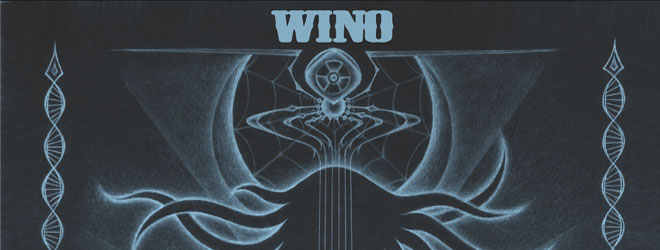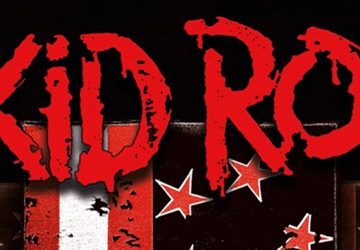
The first of the label’s ‘Blood and Strings’ collection, Forever Gone gives ample room for Wino to flex his gritty, sun-baked pipes across eleven well-chosen tracks. Weinrich has spent the better part of four decades laying claim and waste to being the literal voice of Stoner Rock and Doom, founding seminal bands like The Obsessed (originally Warhorse), Spirit Caravan, and Shrinebuilder, an outfit which also featured Al Cisneros of Sleep and Om and Scott Kelly of Neurosis, as well as breathing new life into a band like Saint Vitus across several stints.
All Wino’s history in mind, Forever Gone may not be entirely new material, but still is fun. A handful of tracks have been redone from earlier work with German balladeer and Folk hero Conny Ochs, and the raucous closing cover of “Isolation” by Joy Division has been a Wino live staple for years. However, the freshness comes from the largely acoustic, stripped, solo approach Wino has undertaken with each of the eleven tracks. Adding to it, the album was produced Frank Marchand, known for his work with The Obsessed, as well as former Hüsker Dü masthead Bob Mould.
Opening with the stark title-track, where Wino immediately fulfills his promise to paint a picture for the listener, and closing with the uplifting “Isolation” cover—a rendition which, like roughly half the album, skirts the acoustic/electric divide— puts Forever Gone Weinrich in his home element. There is his husky voice and aggressively acoustic guitar stylings across all the songs that run the gamut of deceit, positivity, loss, and optimism.
Haunting backing vocals also pepper a few tracks, such as the brazenly bare “Was, Is, and Shall be,” full of instrumental lurches and restarts, ultimately ending almost out of frustration rather than completion. Then there is the charged full-band vibe of “Dark Ravine.” There are other brisk, barren tracks, such as the title-track, as well as “The Song’s at the Bottom of the Bottle.”
Moving on, the idea of ‘Blood and Strings’ leaves room for electric exploration. This is while the earthly departure in the middle of “No Wrong” brings Wino far above the territory of his guitar contemporaries, with the vocals equally distant; Dave Wyndorf of Monster Magnet comes to mind quickly here, but is just as quickly dismissed by wind and smoke. Another entry given second wind after work with Ochs, “Dead Yesterday” mixes lead acoustic guitar with brief glimpses of electric rhythm.
Forever Gone could be taken as a dreary title, but Weinrich still makes time and space for a departure from the morose. In fact, “You’re So Fine” is almost a proper love tune to an unnamed muse. The track may ultimately be the largest departure for Weinrich, but one which still falls in line with his brash delivery and caustic wit. This is while “Isolation” adds even more electric noise, especially on the heels of the pain and agony of “Was, Is, and Shall Be,” but the meandering path taken by Wino still steal the show during the nod to Joy Division.
Forty years have passed since Scott “Wino” Weinrich first laid his pale, raspy voice to tape, and the intervening decades have yielded some fresh, bitter fruit. Forever Gone puts a new spin on some old classics, and also sees Wino exploring his voice pitted against little more than a guitar, electric, acoustic, or otherwise. Existing fans will find plenty of familiar work here, while new fans—after wondering how this was their first Wino record—will find plenty to like to dig back into the dense existing catalog. Full of warmth, death, joy, and agony, Cryptic Rock gives Forever Gone 4 out of 5 stars.





